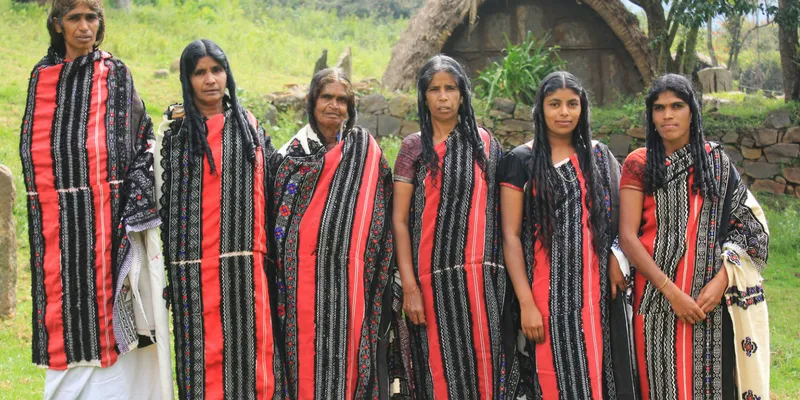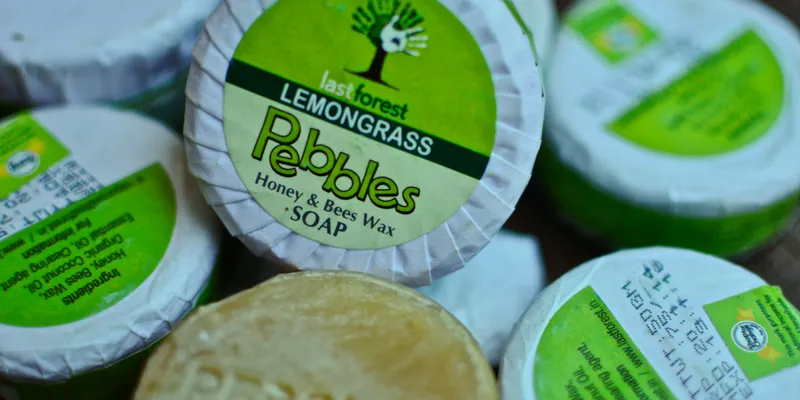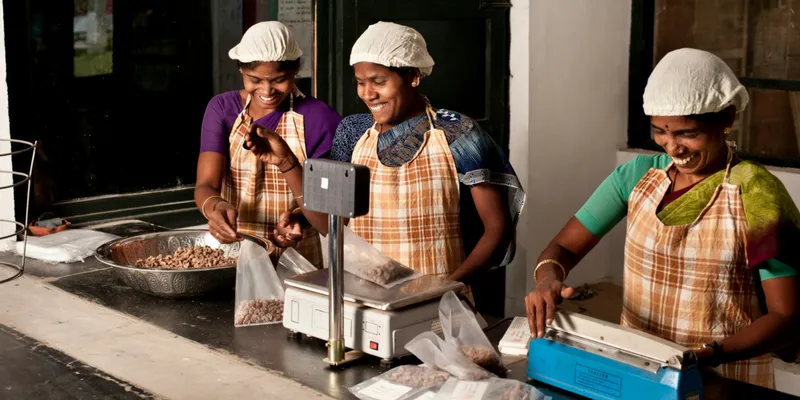Last Forest is providing livelihood to over 6,500 tribals in remote Nilgiris
The enterprise provides livelihoods and training in sustainable harvesting and organic agriculture to indigenous communities in the area and aims to preserve, conserve and nurture the environment.

Nestled in the heart of the gorgeous mountains of Nilgiris, Kotagiri is located near Ooty and Coonoor, popular hill stations in Tamil Nadu. On the drive to Kotagiri, one can see the tea plantations scattered all over.
Kotagiri, which falls under the Nilgiri Biosphere Reserve is home to a wide variety of flora and fauna and also houses a rich reserve of natural resources. It is also home to different tribal groups like the Todas, Kotas, Irullas, Kurumbas, Paniyas, Adiyans, Edanadan Chettis, Cholanaickens, who are native to the region. A perfect example of cultural diversity.
Providing livelihoods and training in sustainable harvesting and organic agriculture to residents in this area along with the mission to preserve, conserve and nurture the environment, is Last Forest, a profit-hybrid institution incubated by the NGO, Keystone Foundation.
Fair trade practices

Mathew John, Pratim Roy, and Snehlata Nath, are the founders of Last Forest. They are also the founding directors of Keystone Foundation, which has been working with indigenous communities on eco-development initiatives in the Nilgiri Biosphere Reserve (NBR) since 1993.
Last Forest was created to primarily serve as a marketing platform for the indigenous communities, self-help groups, social enterprises, and Fair Trade entities.
In any supply chain, it is always the producer that takes the hardest blow and yet carries the heaviest yoke. This is the issue we are attempting to tackle every day - to increase benefits for the producer. We are also a fair trade entity, one of whose principles is to ensure fair prices are paid back to the grass root level, says Nandan, senior manager for enterprise development.
Organic produce

Last Forest has a vast range with the flagship product being wild honey from the Giant Rock Bee, collected using traditional methods by these indigenous communities. Over the years Keystone and Last Forest have worked extensively with these groups and trained them to maintain and ensure sustainable harvesting of honey.
Read More:
Keen to live off the grid? This couple from Karnataka shows the way
Karnataka launches cloud-seeding to increase rainfall, how effective is the technology?
Beeswax is sourced too from these forest hives and used to make a variety of lip balms, balms, and handmade soaps. All these value added items are made by women in production centres that are built in the villages within the forest. Although there is a stringent quality check process done at the head office in Kotagiri, the women at the production centres are well-equipped to check quality, manage efficient production, and maintain inventory.

Apart from these they collect several non-timber forest produce (NTFP) such as gooseberry, pepper, soapnuts, black jamun, nutmeg, and others. The Gooseberry is also converted into dried candy, black jamun into jam, pepper into powder or stored in brine, and so on.
Most are employed in the village production centres, others are members of the sister organisation - the producer company Aadhimalai Pazhangudiyinar Producer Company Limited. Others work at the head office in Kotagiri.
They have been trained by several experts in different areas, and they are very good in picking up skills and honing them. We have not intervened much with their methodologies but have endeavoured to combine conscious practices with existing skills. We directly impact 1609 individuals through Aadhimalai, and about 5000 individuals indirectly via our supplier partners, says Nandan.
Growing demand

Last Forest has three stores in the Nilgiris hills, one each in Ooty, Coonor, and Kotagiri under ‘Green Shop,’ and a Slow Food and organic restaurant Place to Bee in Ooty, that bring in major sales. There is a dedicated marketing team that works with over 100 stores across the country supplying to them in wholesale quantities.
“We do put in effort in scaling up but only to the capacity of sustaining natural resources and conserving the environment,’ says a member. They also have an e-commerce site which is showing a steady increase in sales, and a few products are up for sale in Amazon as well.
“Over the years we have striven to improve the quality of life for all these indigenous groups and marginalised communities, and focused on their holistic livelihood. We have also created employment for many and, improved gender equality for job opportunities.
Our biggest contribution apart from this is training individuals in sustainable harvesting and organic agriculture. We do our best to preserve, conserve and nurture the environment,” says Nandan.
Enter the SocialStory Photography contest and show us how people are changing the world! Win prize money worth Rs 1 lakh and more. Click here for details!







